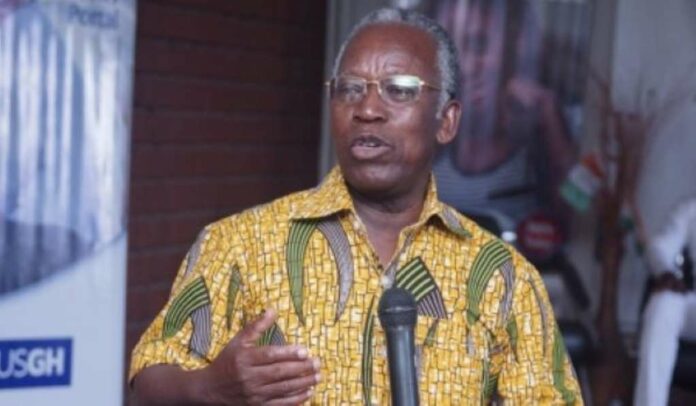A former Minister of State and scholar, Kojo Yankah, has called for reforms in Ghana’s educational system to drive economic growth and address the problems facing the country.
According to him, future generations must be taught to be proud of their Ghanaian and African heritage through the incorporation of patriotism and indigenous knowledge in educational curricula.
“Our post-independence education system has not been redesigned to liberate us, as a country, economically and that we are only celebrating educational achievements that have helped to oil the economic fortunes of countries other than Ghana.”
“I believe it is appropriate for me to state that with time, we have totally lost our way as African people with our kind of education, making us incapable of solving our own problems, especially our economic problems,” Mr. Yankah observed.
Delivering an address at the 8th R.T. Orleans-Pobee Memorial Lectures on October 26, 2023, the founder of the African University College of Communication (AUCC) expressed worry about how the current educational system has been designed to mould young people into westerners, just like during the colonial era.
He noted that this is among the reasons for the large numbers of the country’s professionals, trained at the expense of the taxpayer, leaving their homeland to give their services to other countries.
“I wish to observe here, sadly, that our education has not given us the confidence that we were created in the image of God. Our education has taught us that there are only a few selected Men of God and the rest are not,” the Adisadel Old Boy (Class of 1964) added.
https://www.facebook.com/watch/?extid=CL-UNK-UNK-UNK-IOS_GK0T-GK1C&mibextid=ng2Npd&v=319238354058734
Mr. Yankah noted that even though Indians were colonised, their creativity, culture and sense of patriotism has saved them millions of financial revenue.
What can be done, going forward?
He advocated a compulsory study of African heritage and history at various levels of education to instill some pride in children about their origin.
“When Ghana gained independence, the Nkrumah government quickly put in place a 10-vear Development plan. The accelerated Educational Plan placed a senior high school in each district under a free and compulsory educational program.”
“Research institutions in all areas of national growth were set up. With Nkrumah’s overthrow went all the great intentions of our educational reform, and we have not recovered,” Mr. Yankah said.
“Again, our country was founded on the sands of Pan-Africanism; why can’t we teach this in all schools, and save ourselves from seeing other Africans as rivals or strangers?” the accomplished author quizzed.
In a bid to ensure problem-solving skills among children, he recommended the teaching and learning of proverbs and old saying from the primary schools through to the senior high levels.
“Problem-solving has not been given its rightful place in our consciousness as a people. It should not just be a talking shop; it should be the basis of assessment of all our graduates. Already, history is complaining that our curriculum is not labour-friendly.”
“It is time to make Ghanaian/African heritage/history and culture the bedrock of our entire educational system. There lies our road for self-identity,” he stated.
About the R.T. Orleans-Pobee Memorial Lectures
The annual lecture series is organised by the Adisadel Old Boys’ Association in honour of Robert Thompson Orleans-Pobee, a former headmaster of Adisadel College.
The late headmaster’s tenure spanned 1963 to 1974.
Mr. Kojo Yankah delivered a speech on the theme, “Is today’s education relevant? A new look at Adisadel.”


